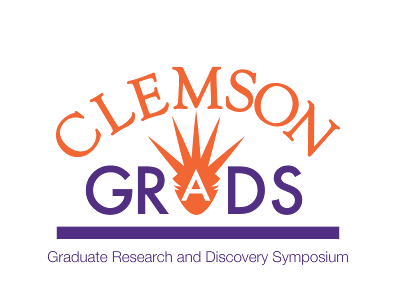Graduate Research and Discovery Symposium (GRADS)
Document Type
Poster
Publication Date
4-1-2019
Abstract
The General Engineering Learning Community (GELC) at Clemson University is a program that provides academic support for first-year engineering students with insufficient calculus skills upon entry to the university. Students are cohorted in three primary STEM courses, math, chemistry, and engineering, as well as a two-credit hour learning strategies course that focuses on building skills around being an effective learner and STEM student. The course aims to enhance students’ self-regulatory behaviors, learning skills, and habits of mind. Among other assignments, student learning is assessed through a series of learning journal assignments, including an extensive set of exam wrapper activities, which will be the subject of this paper. The current study explores the exam wrapper activity results as they relate to academic achievement and increased metacognitive awareness for students within the program. The exam wrapper activity, which extends beyond traditional exam wrappers used in the context of undergraduate education, guides students in developing knowledge of their exam preparation, learning new preparation strategies, and engaging with those strategies in preparation for the next exam. The cycle continues as students analyze the results of their second exam to gain knowledge about the effectiveness of their new strategies. Prior to the first round of exams, students complete pre-exam assignments, including a week-long time tracking log and a reflection reporting perceived confidence level in each of the three cohorted courses. Following the first round of exams, students select the course in which they wish to improve their performance most significantly and then complete both an exam wrapper survey and learning strategies survey to evaluate their preparatory behaviors, conceptual understanding, and performance on the exam. Each student develops an action plan for improvement based on their results and begins implementation immediately. Following the second exam, students complete an exam wrapper survey followed by a learning journal, in which students evaluate and reflect on their adherence to and effectiveness of their action plan and performance on the second exam. A mixed methods approach was utilized to analyze student learning gains by quantifying exam grades as well as qualitatively examining students’ self-reported responses through reflections, exam wrapper survey results, and documentation of changed study behaviors. Results suggest that engagement with the exam wrapper activity contributes to students’ knowledge of how to effectively learn in STEM courses in addition to sharpening students' metacognitive processes.
Recommended Citation
Stephen, Abigail T.; Whisler, Laurel; Stephan, Elizabeth A.; and Trogden, Bridget G., "Using Exam Wrappers in a Self-Directed First-Year Learning Strategies Course" (2019). Graduate Research and Discovery Symposium (GRADS). 296.
https://tigerprints.clemson.edu/grads_symposium/296


